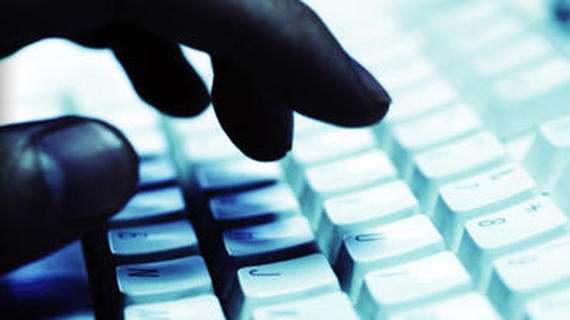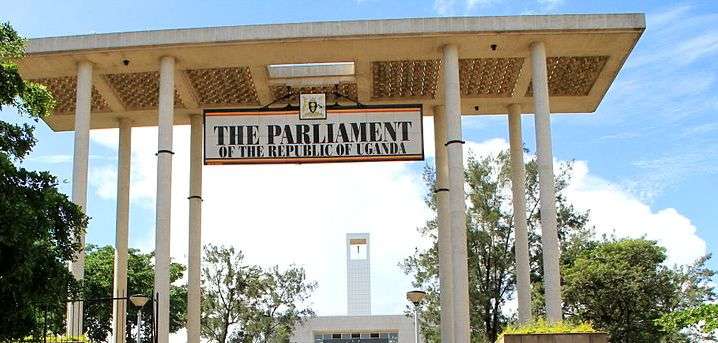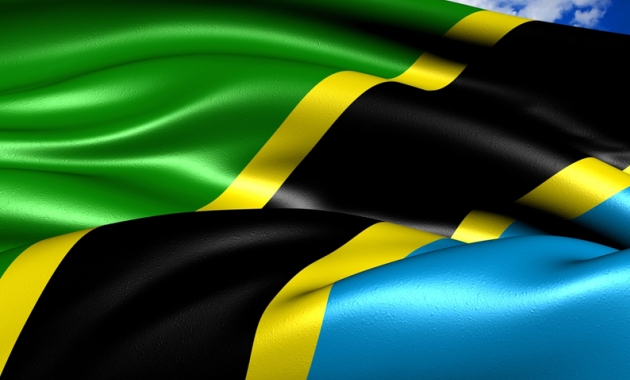By Evelyn Lirri |
The story of a 19-year-old student from Kenya who committed suicide after a man she met through Facebook threatened to publish her nude photos came to the limelight on the heels of the opening day of the Forum on Internet Freedom in East Africa, which took place in Kampala, Uganda.
The forum, organised by the Collaboration on International ICT Policy for East and Southern Africa (CIPESA), under the OpenNet Africa Initiative, drew a cross-section of people from Africa and beyond, including human rights defenders, academics, , law enforcement officers, communication regulators, media, and the tech community to debate issues impacting online freedom of expression and cyber security in Africa. The emerging issue of online violence against women (VAW), a growing problem worldwide, was among the key topics discussed.
Panelists at the Forum said cyber violence against women exists in several forms, including stalking, sexual harassment, surveillance, revenge pornography, public shaming and use of images or videos to manipulate individuals. It is particularly carried out through email, social media such as Facebook, Twitter and mobile phone instant messaging platforms like WhatsApp.
Ruth Nsibirano, a gender expert from Makerere University, said it is difficult to quantify the extent of cyber VAW in Africa because of several inhibitions including the culture of silence.
“In many cases when women report this kind of violence, they are blamed for causing it and so they end up keeping quiet instead of speaking out,” explained Dr. Nsibirano. She added that many women were reluctant to report their tormentors because of the fear of reprisal and, in other cases, they did not know where to seek redress.
According to Jan Moolman, a feminist activist with the Association for Progressive Communications (APC) who was on the panel that discussed gender-based online violence, women’s access to the internet and technology remains low, especially in developing countries, leaving the conversation on internet rights to be dominated by men. She noted that in some African countries, online VAW was targeted at public figures, largely because of the nature of their work.
“We need policies and legislation by governments to say this kind of behaviour online is unacceptable. Just like we are responding to violence against women offline, we need to do the same online,” said Ms. Moolman.
Despite the ongoing reports of harassment and intimidation, Ms. Moolman urged more women and girls to join online spaces in order to be part of the conversation against the vice and how to ensure they are safe when they use different online platforms.
Nanjira Sambuli, a research manager with iHub Kenya, said cases of violence against women are usually difficult to prosecute because the evidence is hard to present.
“The cases that come to the limelight are likely a representative of what we don’t hear or see. We need to work towards frameworks that allow people to report anonymously. That way, we shall have a better sense of what is happening,” she said.
Ms. Sambuli highlighted the fact that efforts to combat violence against women have thus far been mainly offline, with fewer strategies put in place to document the harm that happens online and ensure women know where to seek help when they have been violated.
“The internet especially social media platforms are spaces where people are beginning to negotiate and understand what it means to have freedom and what the boundaries are. The internet should be a space where citizens can engage, learn and build a better society,” she added.
Among the possible efforts to curb the vice, Dr. Nsibirano called for increased education of women on the dynamics of the internet through school curriculums. “That way, we shall get more women who will be knowledgeable when these crimes happen,” she said.
Many countries across Africa do not have specific laws under which offenders can be prosecuted. In Uganda, some offenders have been charged under the Anti Pornography Act, 2014, but participants noted that this law was not sufficient to address the problem given that the same law could be used to prosecute the victims.
“Digital evidence is an area that the world is still trying to figure out,” noted Ms. Sambuli. She stressed the need for laws not to aggravate the infringement of victims’ privacy during investigations and prosecution of VAW crimes.
Access to Information in Uganda to be Recognised at Internet Freedom Forum
As part of its OpenNet Africa initiative which is aimed at promoting internet rights in Africa, the Collaboration on International ICT Policy for East and Southern Africa (CIPESA) is next week set to host the second Forum on Internet Freedom in East Africa. The two-day event is scheduled for 28 and 29 September 2015, in Kampala, Uganda and will coincide with the International Right to Know Day.
Uganda was the first of two countries in East Africa to adopt an Access to Information Act (ATIA) in 2005 (the other is Rwanda in 2013) which promotes the right of access to information and supports public participation in decision-making processes. As part of the forum the Ministry of Information and National Guidance in the Office of the Prime Minister (Uganda) in partnership with CIPESA and the Africa Freedom of Information Centre (AFIC) will celebrate the 10th anniversary of ATIA, host discussions to evaluate the implementation of the law, how to overcome challenges on implementation and proposals for amendments. The second State of Right to Information (RTI) in Africa report will also be presented.
In Africa, Government Ministries, Departments and Agencies (MDAs), Civil Society Organisations (CSOs), the private sector, academia and ordinary citizens are increasingly utilizing online tools for social and economic engagement, online debate, advocacy and business development. The Forum will serve as a platform to discuss how the current state of internet freedoms in Africa affects these engagements. Further, it will also explore the threats online engagements face, how emerging global issues impact upon local users, as well as the opportunities for action to promote access, privacy and security online.
The 2015 edition of the State of Internet Freedom in East Africa Report will be launched at the Forum.
Ashnah Kalemera, Programmes Associate at CIPESA, says that, “This report is the culmination of exploratory research conducted in Burundi, Ethiopia, Kenya, Rwanda, Tanzania and Uganda into the threats to access, privacy and security online, as well as the knowledge, attitudes and practices of citizens on internet freedoms in these countries. The insights gathered can help guide policy makers, civil society, telecommunication regulatory authorities in understanding the internet freedom landscape in the region including the challenges, opportunities and developments.”
According to the International Telecommunication Union, by the end of 2015, there will be 3.2 billion users of the internet, of which 2 billion will come from developing countries. This translates to 34% of households in developing countries accessing the Internet, compared with more than 80% in developed countries. In the report focus countries, internet penetration in Burundi stands at 4.9% (2013 statistics), while according to 2014 statistics, Kenya had a penetration of 52%, while Rwanda was 20%, Tanzania at 4.8% and in Uganda at 20%.
The Forum brings together human rights defenders, journalists, government officials, academia, bloggers, developers, the arts community, law enforcement agencies and communication regulators, all of whom have a role to play in advancing the rights of citizens to privacy and freedom of expression in the online sphere.
Participants confirmed to attend hail from Burundi, Cameroon, Democratic Republic of Congo, Ethiopia, Germany, Italy, Kenya, Nigeria, Rwanda, Tanzania, South Africa, South Sudan, Sudan, Somalia, Uganda, United Kingdom, United States of America, Zambia, and Zimbabwe.
Speakers at the panel will come from organizations including Article 19, Bayimba (Uganda), Bloggers Association Kenya, Chapter 4, ICT Association Uganda (ICTAU), Globaleaks, Global Voices (Uganda), Great Lakes Voices (Rwanda), Hub for Investigative Media (HIM), iHub Research (Kenya), Internet Society [(Africa, Burundi and Uganda Chapters], Jamii Forums (Tanzania), UNESCO, Facebook, Kenya ICT Action Network (KICTANet), Makerere University (Uganda), Media Institute of Southern Africa (MISA), Paradigm Initiative Nigeria, Protège QV, Uganda Media Centre, Uganda Communications Commission (UCC), Uganda Police Cybercrime Unit, University of Nairobi, Web We Want, Writivism (Uganda) and the Women Of Uganda Network (WOUGNET) among others.
Topics to be discussed include electioneering and extremism in the digital age, press freedom, access to information online, the economics of the internet, digital safety, online violence against women and cybercrime. See the Programme.
We are thankful for the support received from the African Centre for Media Excellence (ACME), Ford Foundation, Hivos, Open Technology Fund, UNESCO and Web We Want.
Analysis of ICT in Governance Policies and Practice in Uganda
In our research series this month, we review government and non-government ICT initiatives in Uganda. We examine how ICT-related policies and other legislation affect citizen participation, democratic governance and influence the link between ICT and public services delivery.
The report is based on policy analysis, stakeholder interviews and literature review, and aims to inform awareness raising initiatives and advocacy for more progressive policies and practices regarding the use of ICT in governance and civic participation in Uganda.
Read the full report
Forum on Internet Freedom in Africa 2016 – Speakers
 Angela Kilusungu | Culture and Development East Africa (CDEA) |
 Zawadi Nyongo | Independent Consultant |
 Neil Blazevic | Defend Defenders |
 Enrico Colander | Research ICT Africa |
 Martha Chilongoshi | Panos Southern Africa |
|
Promoting Access to Information and Digital Safety Awareness among Tanzanian Journalists For Upcoming Elections
By Gasirigwa G.S |
As the 25 October general election draws closer in Tanzania, journalists have been urged to be impartial in their reporting. Many have also taken steps to ensure that their digital communication is not compromised particularly when seeking information during the electioneering period.
In August, the Media Institute of Southern Africa (MISA) Tanzania Chapter, in partnership with the Collaboration on International ICT Policy for East and Southern Africa (CIPESA) organized two training workshops on access to information with special focus on digital safety for Media practitioners in Tanzania. A total of 40 journalists (13 women and 27 men) from Geita, Mara, Mwanza and Dar es Salaam received practical digital safety skills against a backdrop of discussion on the Access to Information and Media Services bills as well as the recently passed Cybercrime Act 2015 and Statistics Act, also of 2015..
The objective of the workshops was to enhance knowledge and skills of selected media personnel in various outlets in order to enable them to access relevant information, cover and report factually and responsibly during the 2015 general election.
Participants most of whom had no prior knowledge of what the proposed and enacted laws entailed had the chance to discuss and deliberate on how safely they can cover the ongoing campaigns and the October elections without falling on the wrong side of the laws.
In February, the government of Tanzania attempted to table and pass the Access to Information (ATI) and Media Services bills under certificate of urgency. The attempt was blocked by media and access to information activists under the Coalition of Right to Information (CORI) with support from Members of Parliament. Tabling the bills under certificate of urgency meant that they would be passed into law without stakeholders review and input. CORI argued that the bills were draconian and shouldn’t be passed without earnest consultations with stakeholders.
The proposed access to information bill contains a number of provisions which are contrary to the country’s 1977 Constitution. Section 2 (4) of the bill states: “Nothing in this Act shall limit or otherwise restrict any other legislative requirement for a public authority to disclose information.” Under this provision public authorities could continue to withhold information despite the fact that the law is aimed at promoting information availability in the public domain.
The Bill further exempts the disclosure of certain information, placing vague restrictions on information which may: undermine national security; is likely to impede due process of law or endanger safety of life of any person; undermine lawful investigations being conducted by law enforcements agencies; and “significantly” undermine the operations of Tanzania Broadcasting Corporation (Section 6).
Other proposed provisions carry even wider violation of right to information. For example, Section 18(1) of the Bill states that “Information obtained by a person requesting from the information holder shall not be for public use”. Any person who contravenes this provision commits an offence and shall, upon conviction, be liable to imprisonment for a term not less than five years.
In a separate move, the government tabled and passed into law the Cybercrime Act and Statistics Act under certificates of urgency, making them operational as of September 1, 2015.
For its part, the Cybercrimes Act among many other things, criminalizes and penalizes the publication of “information, data or facts presented in a picture, texts, symbol or any other form in a computer system where such information, data or fact is false, deceptive, misleading or inaccurate”. Offenders are liable for at least six-months imprisonment and/or a fine of Tanzania Shillings (TZS)3 million (USD 1,380). The law also provides for at least three years in prison and/or a fine of at least TZS 10 million (USD 4,600) for publication of materials that incite, deny, minimize or justify acts that constitute genocide or crimes against humanity.
Regarding the initiation of transmission or re-transmission of unsolicited messages, the Cybercrimes Act provides for at least one year in prison and/or a fine of TZS3 million (USD 1,380) or three times the value of any undue advantage gained, whichever is higher.
The workshops were eye openers for many who stated they were not aware that several programmes and news items being run could potentially violate new laws. An editor expressed concern on content previously published which might be in contravention to the Cybercrimes and Statistics Acts and “could get us into trouble with the law.”
Moreover, the government through Tanzania Communication Regulatory Authority (TCRA) introduced the Subsidiary Legislation known as the political broadcasting services Code of 2015. The Code was gazetted in June this year and communicated to media owners in a seminar organized by TCRA. The code, which is not available in softcopy has serious implications on electronic media (Radio, TV and Social Media) during reporting of election issues.
The workshops served as opportunities to familiarise journalists with the recently passed laws and tabled bills. During the proceedings, journalists were also reminded that although the Media Services and Access to Information bills were not passed by parliament, the Newspaper Act of 1976 remained operational and media practitioners remain bound by it.
“I didn’t not know about this Broadcasting Code, TCRA summoned us bloggers to a meeting and made us sign a document that we were told was just guidelines for media and online users. They never told us we were signing our own jail warrants”, added Geofrey Adroph, photographer and blogger.
In light of the new and existing laws, the workshops and interactions made participants revisit ethical considerations and reporting guidelines in the run up to, during and after the elections.




